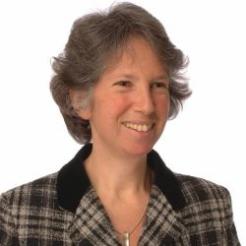Susan Daniels, chief executive, National Deaf Children's Society
National Deaf Children’s Society chief executive Susan Daniels explains how the charity went about developing a strategy "for our times, but not limited by them".
The landscape
These are dark times for children’s services, particularly vital support for disabled children and their families. NDCS revealed last month that almost one in five local authorities in England has cut either budgets or staff providing specialist educational support for deaf children – this is despite the government having ring-fenced the education budget. Hardest hit are specialist teachers of the deaf, leaving deaf children with less help to develop their communication skills and classroom teachers with less support to teach a deaf child. It’s clear that local and national governments are under pressure, and that we, along with many other charities face a battle to protect, yet still improve, support for the vulnerable children and young people we represent.
At a time of so much political and economic uncertainty it may seem a bold move to be launching a six-year strategy. However, there are certainties of which we have a firm grasp: the challenges facing deaf children and our vision and mission to overcome these. Although the attainment gap for deaf children has slightly closed, 65 per cent of deaf children still fail to get five good grades at GCSE – and a lack of support at school is the biggest reason for this, since deafness is not a learning disability. Local government cuts threaten to reverse these recent improvements and make any further narrowing of the attainment gap extremely challenging.
Without the right support, deaf children are vulnerable to isolation, abuse, bullying, poor self esteem and low levels of achievement, and much of this vital support from local authorities is at risk of being reduced across the country. It is clear that deaf children and young people and their families will need more support from NDCS, whether that’s helping them to win the services they need and deserve from local authorities, providing more one to one support from our family officers, welcoming more families and deaf children to our events held all across the UK, or lobbying government to make deaf children a political priority.
Despite the challenges that we all face, we refuse to be anything but ambitious about the future of deaf children.









